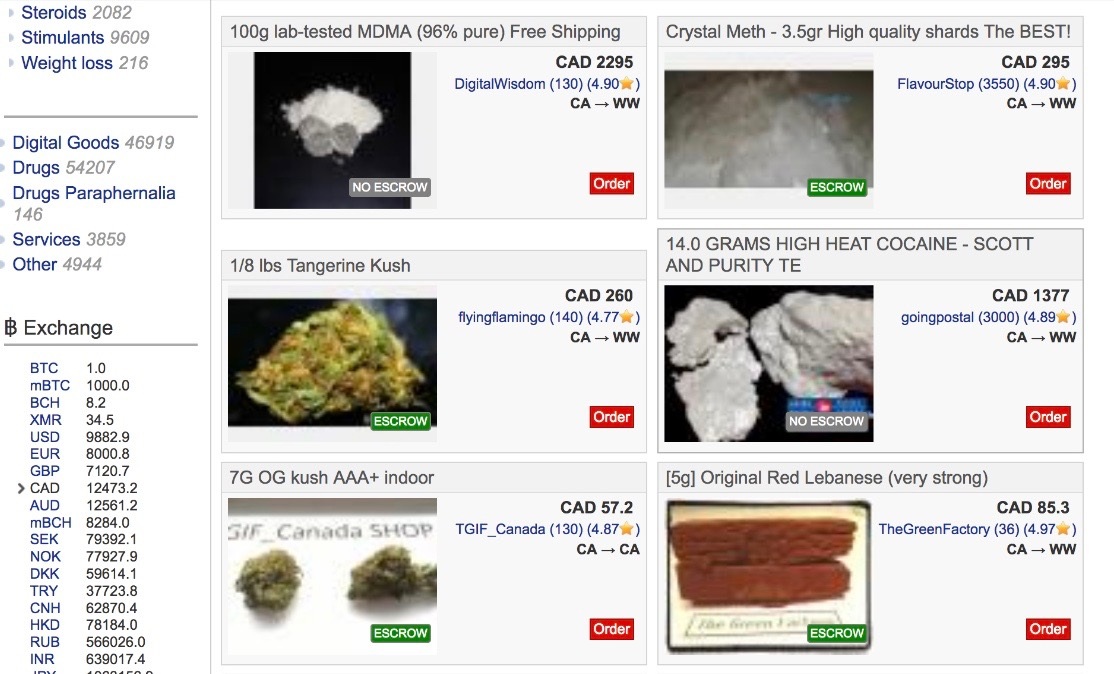The emergence of e-commerce has transformed the way we purchase, providing convenience and entry to a apparently infinite array of items and services. On the other hand, this digital marketplace also has a obscure counterpart known as darknet markets. Operating beneath the surface of the internet, these hidden platforms offer a selection of goods—some legal but many illegal—that cater to a variety of clients.
Exploring the realm of the dark web reveals not only the attraction of privacy but also the sinister motivations behind these exchanges. From illegal drugs and stolen data to counterfeit currencies and dangerous arms, darkweb markets create a specific ecosystem where laws are minimal and hazard is significant. Recognizing the dark side of e-commerce involves delving into these hidden markets and recognizing their impact on communities.
Summary of Dark Net and its Features
The darkweb refers to a part of the internet that is not indexed by standard search engines and requires specific software to access. Most commonly associated with the The Onion Router, the dark net provides a venue where users can browse and connect in secret. This privacy attracts various users, including those who wish to maintain their identity, as well as those engaged in unlawful activities. The darkweb operates independently of mainstream internet protocols, making it a hotbed for both constructive and harmful interactions.
Underground markets are online platforms located within the dark net that facilitate the trading of merchandise and items, often involving illegal or restricted items. These markets function like to e-commerce sites but with a focus on privacy and confidentiality. Users can buy a variety of items, including narcotics, arms, and illicitly acquired information, usually using cryptocurrencies to further conceal their details. The design of these markets allows for user feedback and evaluations, creating a level of confidence among buyers and sellers despite the unlawful nature of the exchanges.
The functionality of darkweb platforms is heavily reliant on security features and decentralization, which helps to safeguard the identities of both buyers and sellers. Access to these platforms is typically allowed through particular software like specialized browsers, which hides user activity. This setup not only ensures confidentiality but also hinders police efforts to monitor and control activities within these areas. Despite their illicit nature, dark net platforms exhibit a distinct economy characterized by a range of items and an changing set of challenges for authorities trying to counter the illegal trade.
Risks and Dangers of Dark Web Markets
Engaging with darkweb markets exposes users to a wide array of dangers, mainly due to the cloaked nature of these platforms. Participants frequently engage in forbidden transactions, which can lead to severe legal consequences if discovered. Law enforcement agencies actively monitor darkweb activities, and being found purchasing illegal items can result in prosecution. This shadowy marketplace thrives on anonymity, but this very aspect can render users vulnerable targets for investigations.
Another significant risk is the likelihood for scams and scams. Many sellers on darkweb markets are not trustworthy, frequently using false identities to sell phantom products. Buyers can quickly waste their funds without any way of recourse, as traditional consumer protections do not exist in this environment. Additionally, poorly managed market platforms may vanish overnight, absconding with users' funds and personal information with them, creating a sense of uncertainty among those who take the risk to participate with these markets.
Additionally, the risk of encountering harmful or dangerous content is elevated on darkweb markets. Users may inadvertently stumble upon disturbing materials that can have mental impacts or originate from criminal activities. In addition, there is always a danger of exposure to malware and cyber attempts, as bad actors may seek to exploit unsuspecting buyers. This plethora of array of threats makes it essential for anyone thinking about participation with dark web markets to move forward with extreme caution.
Legal Consequences and Law Enforcement Difficulties
The juridical terrain surrounding darknet platforms is complex and constantly changing. Many transactions conducted on these venues, such as controlled substances sales, firearms transactions, and identity theft, are illegal in most legal systems. darknet drug market This creates a major challenge for law enforcement agencies, as they must navigate a patchwork of laws that significantly differ between territories. The obscurity provided by the darknet makes difficult the recognition of perpetrators and the prosecution of illegal acts, making it difficult to define jurisdiction and carry out legal actions.
Enforcement efforts are often hindered by the very nature of the darkweb's architecture. Many vendors utilize digital currencies to facilitate transactions, further concealing the profiles of customers and vendors. Additionally, these platforms are commonly hosted on servers that can be shifted or closed swiftly, leading to a constant chase between law enforcement and platform managers. The ephemeral nature of these markets means that while one might be closed, others rapidly appear to take its place, continuing the cycle of illicit activity.
Collaboration between global police organizations is crucial to addressing dark web crimes. However, discrepancies in legal frameworks and the challenges of jurisdiction can result in setbacks and complications. As states work to enhance their laws and capabilities to address these crimes, the constantly evolving methods employed by dark web vendors remain a continuing challenge. This persistent conflict highlights the necessity for robust legal structures and improved international collaboration to properly combat the underside of e-commerce.

